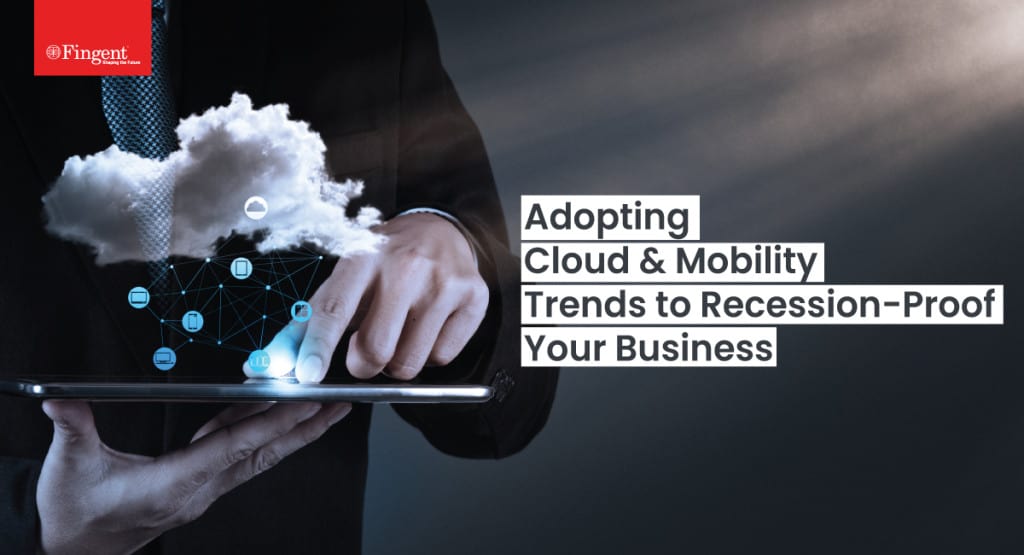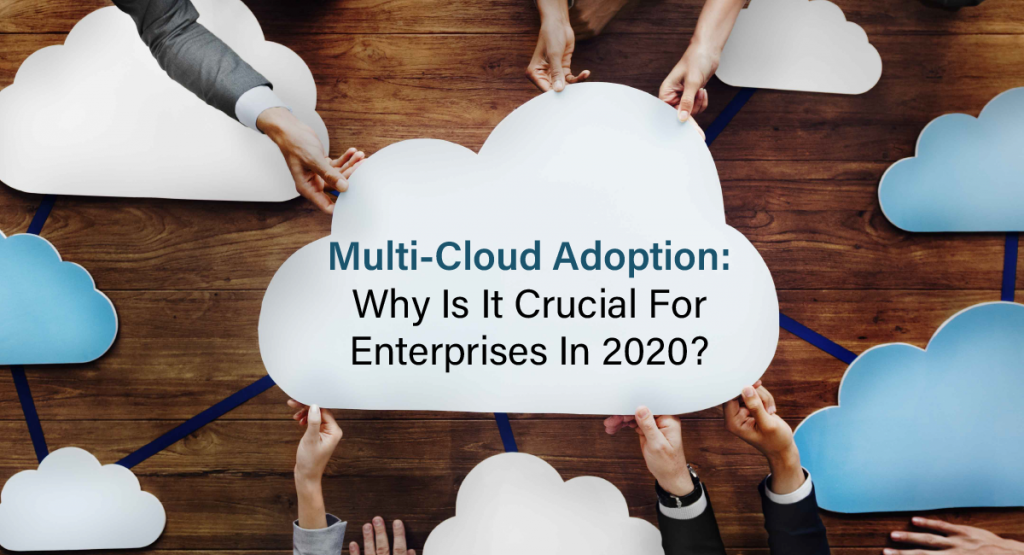A Comprehensive Guide To Modern Cloud Application Development
The cloud approach is gaining immense popularity amongst businesses due to its scalability, enhanced productivity, and cost-effectiveness. According to Cisco, in 2021, over 94% of workload and computing processes will be hosted on the cloud. While many firms are already implementing and thriving with the Cloud, a few still remain to deploy this technology. This blog is a simple guide to help you understand every aspect of the Cloud, and how your business can drive success with Cloud Application Development!
What’s Ahead?
- Knowing the Cloud!
- What is a ‘Cloud-based Application’?
- Benefits of a Cloud App
- Types of Cloud Application
- Key Features to Consider When Developing a Cloud Application
- Some Examples Of Cloud Application
- Developing a Cloud Application
- A Look at the Tools to Build Cloud-based Apps
- Challenges of Cloud-based Application Development
- A Few Common FAQs
- Conclusion
Knowing the Cloud!
In simple terms, the cloud refers to software or service that is accessed over the internet. The cloud uses data centers to store data, which enables easy access of files and applications from anywhere and from any device.
For businesses, leveraging cloud technology can immensely reduce IT costs and overhead, eliminating frequent updates and maintenance of servers. Cloud computing can also simplify international operations for companies by allowing seamless access and control of files and data from anywhere. Google Drive, Dropbox, Apple iCloud, and Microsoft OneDrive are some widely used cloud services today.
Read more: Why It’s Time to Embrace Cloud and Mobility Trends To Recession-Proof Your Business?
What is a ‘Cloud-based Application’?
In the last decade, cloud computing has experienced a tremendous investment. By the end of 2023, the global cloud market is estimated to reach over $ 623 billion.
Typically, a cloud-based app is an Internet-run program having its components stored online with some or all of its processes carried out in the cloud. These on-demand services allow you to access computer networks, storage, or resources using the internet.
Cloud-based solutions help businesses augment capacity, scalability, and functionality while at the same time reduce maintenance and cost for computer infrastructure or in-house teams.
Common solutions provided by cloud-based applications may include;
- File storage and sharing
- Order entry,
- Inventory management
- Word processing
- Customer relationship management (CRM)
- Data collection
- Financial accounting features
Benefits of a Cloud App
The cloud is creating a huge impact on businesses. According to Gartner, over 60% of companies will majorly rely on the cloud for their operations by 2022. Of course, this means that the cloud has some huge benefits to offer for businesses. Here are a few to highlight.
1. Improved data sharing and security
The data stored in the cloud is easily and instantly available to authorized users. Since the cloud offers easy availability of data, security and privacy are often a concern. That is why the advancements in cloud technology have majorly focused on providing enhanced data security. Many cloud providers now guarantee improved data security, making the cloud the best source for secure storage. Also in case of disaster recovery is inevitable, the cloud provides a streamlined solution to restore and back up data.
2. Improved collaboration
Cloud-based apps and software enable organizations to make collaboration an easy and effective process. These applications provide easy data sharing and editing options allowing employees to work effectively on projects remotely and in real-time. Role-based access control enables better monitoring of tasks, and improves team management, especially when operating remotely. Improved collaborations can help enterprises to reduce time-to-market and enhance customer service. InfinCE is a prime example of how enterprises can use a cloud-based app to improve team collaboration. The app provides centralized management, enhanced visibility, and easy communication that drives operational efficiency and productivity.
3. Cost-effective
The cloud space can be scaled up or down depending on your business needs. Cloud service providers allow you to pay per usage of the cloud infrastructure allowing you to only pay for the services you need. Most cloud providers offer seamless concierge support and regular maintenance, which in turn immensely helps reduce the stress and cost of maintenance. Moreover, there is no need to invest separately on devices to store data, as the cloud ensures safe and secured data storage. Put simply, cloud-based apps help enterprises reduce the upfront cost of the IT infrastructure and hence are a cost-effective solution.
Types of Cloud Application
To proceed with cloud application development, you will have to decide what type of app you would want to create. One way to classify the categories is about the differences in the app architecture.
SaaS – Software as a Service
SaaS serves both cloud apps as well as individuals. These apps run on third-party hardware and not on the user’s device. Also, the software is hosted remotely. A big advantage of SaaS is that you don’t have to spend on additional hardware or buy licenses for every software update.
IaaS – Infrastructure as a Service
This type of product often requires middleware and app support from the clients. The customer may have to create a custom programming bridge between the application and its operating system. However, with IaaS, one can develop a customized product without building the basic components from scratch.
PaaS – Platform as a Service
This cloud-based app development requires the application code from the customer. PaaS providers allow their customers to use their hardware and basic development software. As this software is updated constantly, developers can use only its latest version. PaaS is flexible and lets the users scale the product as per their needs. Cost efficiency and flexibility are some of the major benefits of PaaS.
Read more: Cloud Migration Strategy: 7 Steps to Accomplish a Flawless Transition
Key Features to Consider When Developing a Cloud Application
The Cloud is a powerful technology, which if leveraged the right way can do wonders for your company. That is why it is imperative to be clear and sure of what benefits you need exactly to derive out of the cloud application development. Here are a few things to consider when fixing the features of your cloud application.
One of the most eminent features of the cloud is that it provides ample space for flexibility and scalability. With the cloud, one can empower safe storage of data that can be expanded as per convenience.
Most users prefer the cloud because of its storage facilities. However, its security is always a concern. When investing in cloud application development, one must highly prioritize app and data security by ensuring a code-based architecture for improved security.
Although the cloud delivers unlimited benefits, cloud hosting comes with a cost. Thus, data size optimization and condensed user requests should be the top priorities while developing a cloud platform.
To ensure you attain maximum benefits from these and the many other features of the cloud, it is imperative that you partner with developers who are highly aware and experienced with the diverse cloud platforms so that you attain software that perfectly suits your business needs. Moreover, following an agile method of development would allow you to collaborate better with your developers, programmers, designers, data architects, and QA managers for improved development efficiency. At Fingent, we ensure client participation at every stage of app development.
Some Examples of Cloud Application
Most of the apps we use today, utilize the cloud in one way or another. Cloud application development has given birth to some amazing tools and services that make operating businesses a little less stressful. Here are a few to point out!
- InfinCE: Provides streamlined and simplified IT Infrastructure, centralized management, enhanced work collaboration, access to unlimited productivity tools, all under a single platform.
- Dropbox or Google Drive: This allows you to store your files on the cloud easily and help others access them from anywhere.
- Figma: This powerful cloud-based design app is gaining popularity due to its collaborative nature.
- Miro: This provides a virtual board that enables you to work with other users in creative and fun ways.
The possibility to collaborate with users from all over the world, even in real-time is one of the biggest advantages of cloud apps.
Read more: InfinCE – Untangling Technology for Businesses
Developing a Cloud Application
Cloud application development involves different stages, each of which matters to enable your app to hit the market. Most cloud application development teams use DevOps practices and tools such as Kubernetes to ensure an effective and successful project.
At Fingent, we analyze your business needs and custom-build apps that solve your business complexities. We can help you seamlessly transit to the cloud and efficiently deploy its benefits to achieve greater business growth and value.
A Look at the Tools to Build Cloud-based Apps
A wrong tech approach can slow down your business development, so the technological stack is of utmost importance when developing cloud-based apps. You can choose a cloud service vendor from market leaders such as;
- Amazon Web Services(AWS) – In 2019, it obtained a 32% market share and became the leading provider. AWS includes over 140 flexible and integrative services. This allows you to build almost any custom app.
- Google Cloud Platform – As a PaaS, it offers you cloud computing, API services, advanced analytics, storage, NoSQL database service, and even virtual machines. It is flexible, affordable and a great platform for start-ups.
- Microsoft Azure- Its solutions are designed for enterprises looking for scaling or having many web products. Its services may include ML modules, mobile back-end, database services, and virtual machines.
Cloud-based app structure
- Another aspect to consider when cloud application development is the data architecture. A cloud app operates as a collection of interconnected services or APIs. So, to get maximum benefits of cloud services, you will have to connect them and at the same time understand the kind of components you have while ensuring that those services are integrated.
- Next, you must consider data organization. Remember, the app architecture must instruct the cloud services about how to decouple the data. This will help you store the app components either on a public or private cloud. As a result, your business will become flexible and enable you to make your web performance better.
- You must develop a communication logic between the data and services of your app. The app components should communicate instantly. If the logic is not well-designed, the customer experience could be poor due to slow loading speed. So, optimize the communication and apply either single-channel streaming or system message grouping.
- Scaling is something you must think of in advance. Create a margin of safety for your operational channels and consider future traffic extensions. Make sure to build an operational model to help back-end components and storage server customers especially in extreme situations.
- The last issue to think about is the security algorithm. Banking, retail, or healthcare have their dedicated standards so make sure your tools meet their expectations. Make sure to check the security algorithms for any vulnerabilities of your cloud-based solutions and the encryption is strong. Also, implement a cloud identity and access management (IAM) approach, to ensure your product is secure and cost-effective.
Read more: 7 Reasons For Enterprises To Implement Multi-Cloud Strategy In 2020
Challenges of Cloud-based Application Development
When you decide to opt for a cloud-based software solution you should figure whether your company can be a cloud provider (SaaS, IaaS, or PaaS) or build an app based on third-party cloud solutions.
If you decide to be the cloud provider, you will have to think of issues such as the data processing logic, hardware, and service security as you will have to host your service and provide the users with a cloud network. If you decide to develop your app on a third-party cloud, you will have to consider the integration and so you will have to choose your provider carefully.
Here are a few challenges that you may come across during cloud application development.
- Reliability: Your cloud software design includes critical operations that need to work if you want your customers to benefit from the solution. Avoid using a cloud framework that cannot maintain important processes. You can consider backup data and operations with a private cloud.
- Scalability: You must ensure to provide a scalable solution with the service you have chosen. If a product can’t be scaled or it falls over due to sudden traffic surges or you are unable to deliver services to a large audience regularly, you are bound to lose potential profits to your business.
- Performance: More data centers mean the better your app will perform. Global providers place their servers in such a way that users can experience the same page loading speed from any location. If the number of servers is less or the custom UI needs more than three seconds to load, the app customer experience is likely to be poor. More loading time means less conversion. The app loading speed is defined by a Content Distribution Network(CDN) which is a part of the cloud app infrastructure.
- Interoperability: The cloud environment should be able to run your app on different devices and integrate other cloud services into your infrastructure. However, as all cloud systems do not communicate with each other, you may not have a chance to mix components from different services.
- Security: Security especially client-side along with storage protection will remain challenging for developers. Security is the biggest challenge when it comes to adopting cloud computing. Cloud apps may include API integrations. These apps also must be easily accessible for users. To raise the security level of your cloud-based app, you will have to leverage strong data encryption, SSL, and reverse proxy.
A Few Common FAQs
1. What are cloud-based technologies?
These technologies are applications, services, or resources that are made available to users on-demand via the internet from cloud computing providers’ servers.
2. How do cloud applications work?
To process logic, a cloud-based app relies on remote servers. This is accessed through a web browser using the internet.
3. What are the different types of cloud computing?
There are three types of cloud computing; public cloud, private cloud, and hybrid cloud.
4. What are the different types of cloud services?
Cloud services are of four types – serverless, infrastructure as a service (IaaS), platform as a service (PaaS), and software as a service (SaaS).
5. What is the difference between a web application and a cloud application?
A web-based application requires some or all the software to be downloaded from the web every time it is run. On the other hand, a cloud-based application function within the cloud and is similar to a web-based application as well as a native desktop application.
Conclusion
From cost reduction and scaling opportunities to higher accessibility of the final product. Cloud application development offers a host of benefits to businesses. However, cloud application development has its own set of complexities if not carried out the right way. A custom software development partner plus a trusted cloud service provider like Fingent can help you seamlessly transit to the cloud with 24/7 concierge support and consultation. Get in touch with us today to discuss your project!
Stay up to date on what's new

Recommended Posts

05 Nov 2023 B2B
Cloud 101 – Getting a Good Return on Your Business Cloud Investment!
In the digital age, cloud investment is your business's propulsion, offering flexibility, scalability, and a competitive edge. However, many companies don't fully reap the cloud's benefits. The cloud's potential remains……

15 Oct 2023 B2B
Hyperscaler Cloud Services: The Next Step In Business Cloud Investment!
Companies can save 20% of the total annual cost if they migrate to the cloud. Hyperscaler Cloud Services can enable businesses to experiment, build, innovate, and run any form of……

10 Oct 2023 B2B
Guarding Your Digital Fortresses: The Imperative of Application Security
In the ever-evolving landscape of cybersecurity, application security stands as the impervious armor that shields your organization's digital fortresses. Imagine your organization's applications as the kingdom's gates – if left……

30 May 2023 B2B
Cloud Application Development: Empowering Your Business In The Digital Era!
“Cloud computing is really a no-brainer for any start-up because it allows you to test your business plan very quickly for little money. Every start-up, or even a division within……
Featured Blogs
Stay up to date on
what's new














